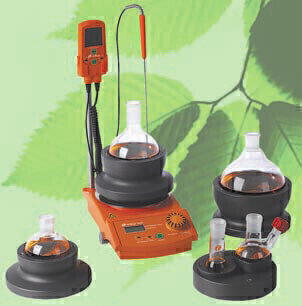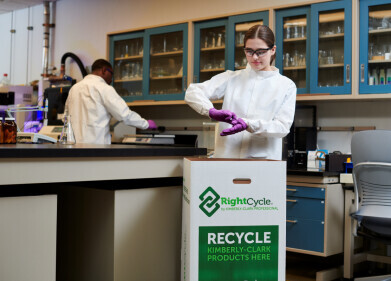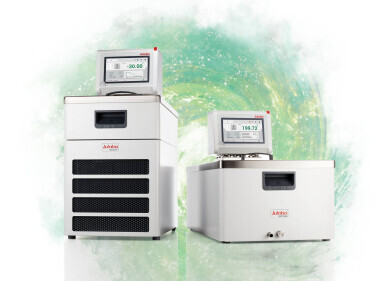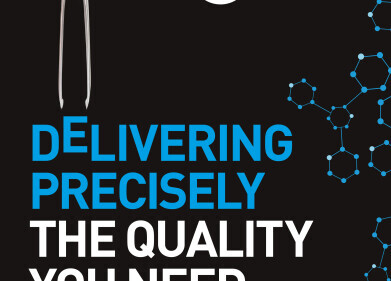Laboratory Products
Heat-On Replaces Unsafe Oil Baths at Leading Australian University
Oct 11 2011
Heat-On blocks from Radleys offer a safer, cleaner and faster method of heating round bottom flasks than conventional oil baths. Looking for a safe and cost effective alternative to oil baths, chemists at a leading ‘green’ university in Australia have invested in multiple Heat-On blocks for use in their teaching and research labs. Commenting on their existing methods, the lead chemist, said: “We purchased the Radleys Heat-On blocks in our continued efforts to improve safety in the lab, replace expensive oils and to reduce environmentally harmful oil waste.
Most previous work requiring heating of reaction mixtures involved the use of oil baths, but with the high cost of silicone oils, many people were using less safe paraffin oils. Our stores also stopped stocking silicone oil because of the cost and although we found a relatively inexpensive alternative, this does seem to polymerize with monotonous regularity.”
“We investigated blocks from several different suppliers but chose Heat-On for several reasons. The main reason was that unlike ‘nested’ systems the 250ml, 500ml, 1 litre, 2 litre and 3 litre came as stand-alone blocks, so more than one person can perform a reaction at a time. The other block system we considered had several ‘nested’ sizes, so you needed the 1 litre block with a 250ml insert to do a 250ml reaction, precluding anyone else doing another reaction as the base block is already in use.
The slightly higher cost of the Heat-On package is adequately balanced by the ability to set up several reactions using the separate blocks. The Heat-On blocks are also very sturdy and are compact, fitting cleanly over the hotplate without extended handles. The Heat-On blocks also have key-like handles, which can be easily fitted to remove a hot block from the hotplate after the reaction.”
“We chose the fluoropolymer coated blocks over the anodised as we felt they will be sturdier for student use. So far, they don’t have a mark on them. We have also used several sizes at temperatures up to 230°C with no problems.”
Digital Edition
Lab Asia 31.2 April 2024
April 2024
In This Edition Chromatography Articles - Approaches to troubleshooting an SPE method for the analysis of oligonucleotides (pt i) - High-precision liquid flow processes demand full fluidic c...
View all digital editions
Events
May 05 2024 Seville, Spain
InformEx Zone at CPhl North America
May 07 2024 Pennsylvania, PA, USA
May 14 2024 Oklahoma City, OK, USA
May 15 2024 Birmingham, UK
May 21 2024 Lagos, Nigeria





.jpg)












